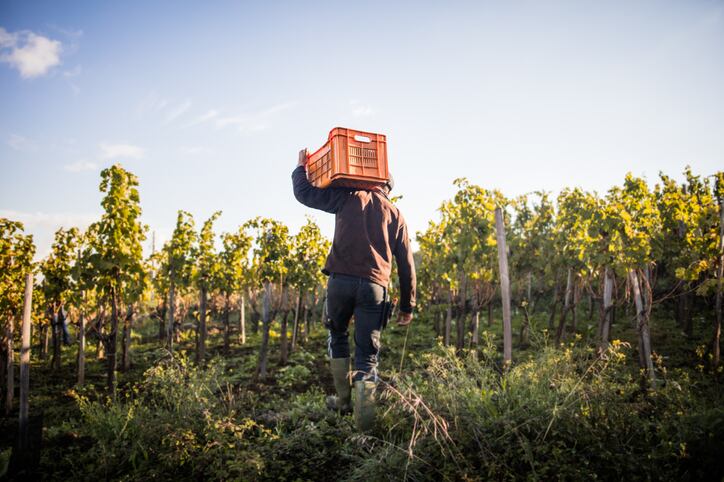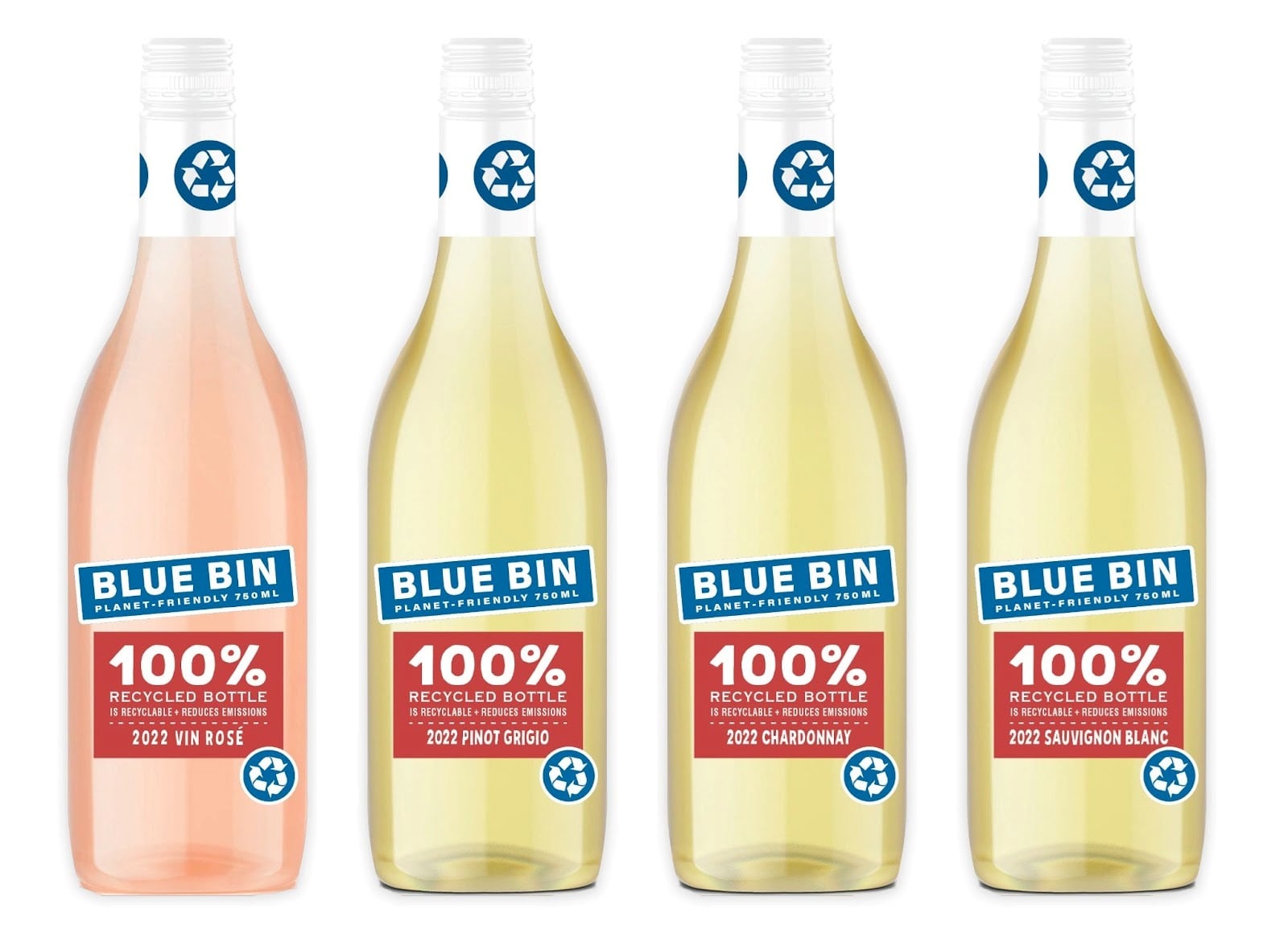Nearly half of companies in the wine industry surveyed by Prowein said they had been affected by staff shortages over the last two years (2021 and 2022).
In a special report released this month, the wine trade show has put the spotlight on which areas of the wine industry are most affected; how big the problem is; and how the industry can react to ensure long term success.
Seasonal workers
In wineries and vineyards, the strong seasonality of the work involved is a large problem. Two out of three companies say they lack temporary workers during harvest and vegetation periods.
In the past, wineries in Europe often drew on seasonal workers from Eastern Europe who returned year on year. However, while a sharp rise in the minimum wage has made working in countries like Germany more attractive, income opportunities in workers’ home countries, too, have grown. Meanwhile, emerging countries in Eastern Europe face staff shortages themselves due to dwindling birth rates.
“Traditionally, [wine producers] have been able to fall back on nonworking homemakers, retirees and students as a silent work reserve to be activated for the labor-intensive grape harvest season. However, the rising share of women in the labor market, a higher retirement age and greater financial security have dried up most of those reserves. Due to low birth rates in younger cohorts, there are also fewer and fewer students that could help out – and those who remain are strongly courted by other industries with sometimes high wages.”
In Australia and New Zealand – where half of all companies can’t find sufficient seasonal workers – are still suffering from the pandemic where seasonal work-and-travel staff were prevented from arriving.
“The global recovery might improve the situation, but sharply increased airfares complicate the return of these migratory laborers. The shortage of seasonal workers is also severe among wine producers in Portugal (94%), Spain (77%) and California (73%).”
In the winery
Among wineries, 50% lament they cannot recruit sufficient staff for wine production and filling. "For the most part, skilled workers in those areas require a qualified professional degree. Since craftspeople and skilled industrial workers are in short supply in most industries anyway, wineries frequently compete with much more solvent industries."
Importers, distributors, exporters and wine merchants are less affected (at 32% to 36%, respectively): because these workers tend to have more-regular working hours and are not subject to seasonal fluctuations, as well as enjoying permanent contracts.
Another skilled area is wine trading, which remains a ‘people’s business’ where establishing personal contacts counts. “Here, the industry needs to stand its ground in the competition for skilled labor by offering appropriate remuneration and good working conditions and by promoting wine’s fun factor,” says the report.
Pandemic continues to impact the on-trade
In the on-trade, businesses are still recovering from the loss of workforce during the pandemic. The hotel and gastronomy sector is particularly hard hit (90% and 66%). Having been forced to close for extended periods either from lockdowns or a slump in travel, many workers found jobs elsewhere – and companies continue to face difficulties regaining old staff or recruiting new staff.
Running into the ground
All this leaves companies – often smaller family outfits – overstretched.
“Numerous comments show that family-run businesses have already reached their limit, leaving them unable to compensate for any further aggravation of the situation. The additional economic worries here often lead to extremely high mental burdens, resulting in burnout. If family members then drop out, economic worries are aggravated even further by the markedly higher costs caused by external replacements.
"Finally, the socially and economically unsustainable labor requirements in wine-growing operations also reduce the chances of passing the winery on to the next generation, members of which often wonder whether this huge amount of work is really worthwhile.
“Staff shortages also directly impact companies’ output. A third of all companies failed to deliver on their quality or service level goals. The harvest was delayed, resulting in a lower-quality grape harvest. Wine businesses were unable to provide gastronomy and hospitality customers the services they desired.
"In order to keep up existing processes, they had to partially reduce capacity. Some winery taverns, restaurants and hotels deliberately curtailed their offerings to ensure sufficient service levels for the remaining tables and rooms. Nearly one in four companies had to put up with sales losses caused by staff shortages because they could no longer offer all their products or services. Almost one in five companies (18%) reduced their service hours or could only deliver with delays (16%).
“Already, staff shortages are impacting the industry’s long-term development. Some 36% of companies were unable to use new business opportunities or had to cut back on planned growth. One in four companies, especially wine estates (32%) and hotels (33%), had to outsource specific jobs to third-party service providers due to a lack of sufficient in-house staff. In part, the profit margin required by external service providers reduces the company’s profit.”
New strategies for finding labor
What does this mean moving forward? While the immediate outlook may look bleak, there’s hope that the shortages could shift the market and help the industry stabilize.
Companies are exploring how they can make up labor shortages. 50% of respondents said they had ‘markedly increased and widened the scope of its search activities’. A quarter said they had recruited staff with insufficient skills and trained them in-house (although highlighting the time and resources required to do this).
A quarter of companies have raised wages. “With this move, however, many companies are coming up against economic limits, putting additional pressure on the economic sustainability of many companies in the wine-growing sector, which was already weak before the crisis.
“Some business owners say they intend to abandon their vineyards or businesses because they earn less for their working time than their staff.”
While wages might not be attractive at the moment, wine is inherently an attractive industry to work in, highlights the report.
“In the eyes of many companies, the fascination of the product wine and working in nature are a special strength of this industry, making it particularly attractive for potential workers. In fact, the younger generation is strongly interested in “green” professions and sustainability issues. This industry can definitely score points in those areas.
“Over 70% of respondents feel that the higher salaries paid in other industries will entail further staff losses. Every other respondent also states the low profitability of the wine industry as a reason, because it limits the sector’s attractiveness. On the flip side, 51% of companies view proximity to nature and to the natural product that is wine as a chance to make this sector attractive for prospective future employees.”
Another shift could be an increase in automation and digitalization – 57% of respondents believe the labor shortage will power this forward.
Meanwhile, large enterprises and cooperatives will be able to benefit from economies of scale – as they are in a position to bear the high required investment and maintenance costs.
Despite this, most companies (54%) are convinced that the industry will also depend on immigration and international seasonal workers in the future. “However, whether levels seen in the past can be maintained going forward remains questionable due to changing circumstances.”




